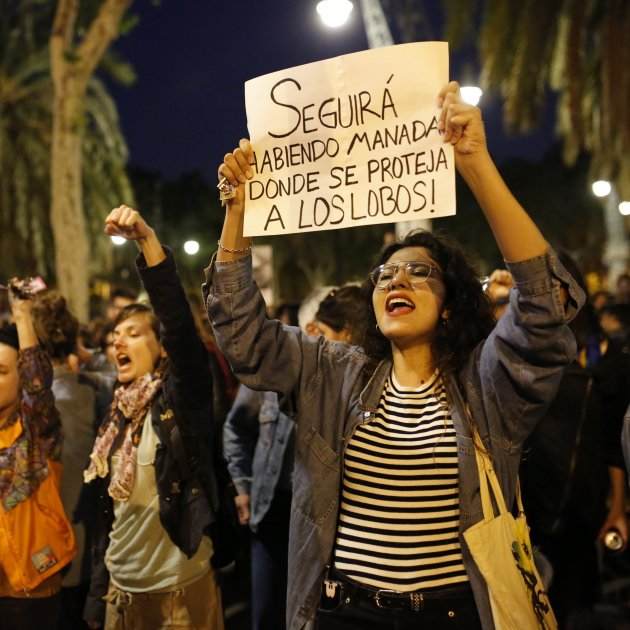If the wave of protests, criticisms and anger following the Manada ("wolf pack") sentence, finding the five guilty of sexual abuse and not rape, was not enough, Spanish justice minister Rafael Catalá has this morning heated the debate up even more, saying that the judge who gave a minority vote for acquittal, Ricardo González, "has a unique problem" and "everyone knows it".
In an interview on Spanish radio station COPE, he said he was "surprised" that the CGPJ (General Council of the Judiciary) didn't act "preventively". "I'm surprised, especially at the members of the profession who know the case, that when everyone knows that a person has a problem and a unique situation, the council shouldn't act and then there are unique results. This could have been avoided," he said.
The minister explained that the judge in question has some history and "some problem", although he stated they can't ask for his removal from office without more information. "The Council's job is to ensure that those who exercise jurisdiction are in full posession of their faculties," he said.
Catalá admitted that he doesn't know the judge personally, but insisted that "everyone knows" about him. He added that although there are 5,500 judges in Spain who are great professionals, "as in all corporations, there are some people who have difficulties".
Criticism of the dissenting verdict
The minister criticised the judge's dissenting opinion in which they argued that, in their opinion, the woman gave consent for what happened.
Catalá said: "a 340-page sentence cannot have 200 pages of an individual opinion with very inappropriate expressions, which is what I believe has caused the social uproar". The text in question says that the videos recorded by the defendants show a woman and five men practising "sexual acts in a festive, joyful atmosphere".
The minister said he has ordered a group of experts to evaluate a potential revision to the Penal Code in terms of the categorisation of sexual crimes. "They'll need their time, they will meet for the hours necessary and will make a proposal which we political parties will evaluate". The minister said, however, this wasn't a knee-jerk reaction to the case.
